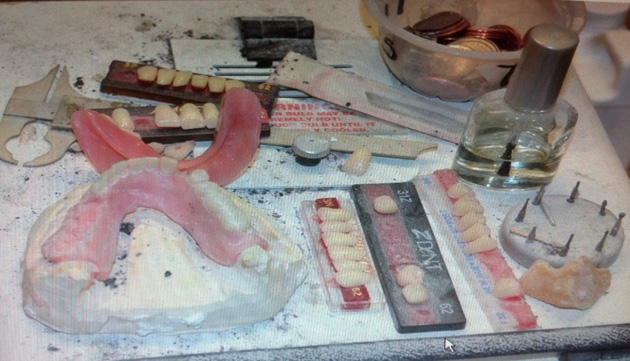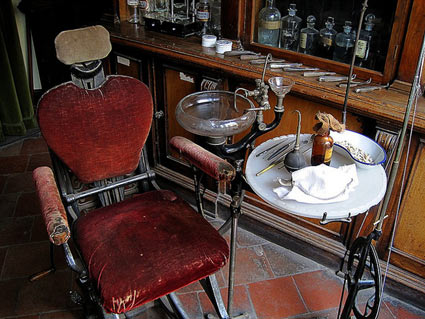
<a href="http://www.shutterstock.com/pic-94074964/stock-photo-dentist-and-his-assistant-carrying-out-a-thorough-examination.html?src=5OzhtfxpDxjpnInH8J7New-1-5" target="_blank">Pressmaster</a>/Shutterstock
Dear Dr. B.,
I’m writing to tell you why I’m taking my business to different dental office. Let me explain:
The last time I had my teeth cleaned at your office, your hygienist told me that the bonding on two of my teeth was coming off, and that I should come back so that you could fix it.
So I made an appointment to do just that. I asked you to take a look at the bonding, and you did. Then you took off your glasses and said, “Forget the bonding for a minute. Let’s have some fun.”
You asked me if I ever felt like no one was paying attention to me when I was in a group, or if I was shy about talking to people.
“No,” I replied. “I’m a journalist. I love talking to people.”
You said that you suspected that my colleagues were ignoring me—and that maybe I should try to observe this behavior over the next few weeks. If I did feel ignored, you said, you knew why: my smile.
“You have bunny teeth,” you said. “It’s distracting.”
You took out your camera and asked me to smile. Then you took a few photos.
You applied some plastic goop called composite to my teeth, which you then dried with what looked like a UV light. When you were done, you asked me to smile again and took more photos. Then you showed me both sets of pictures, and led me over to a mirror where you asked me to admire my fixed smile. You had closed two small gaps and made my teeth more evenly sized.
Even though I could barely see a difference (and honestly didn’t care enough to look that closely) I told you that I liked how it looked, because it seemed like the easiest thing to do.
You told me that the composite made me look more “refined.” Then you told me about two women patients whose smiles you had fixed. One of them had been out of work, and the very afternoon that she left your office, she went on a job interview and got an offer. The other woman’s boss asked her to manage “a team of 36 people” right after you worked on her teeth.
“Does the same thing happen to men?” I asked.
You told me that you wouldn’t know, because men are not as chatty with you as women.
I told you that I had to get back to work, so you removed the composite from my teeth. While I was lying down in the chair with my mouth open, you told me that if you fixed my smile, you firmly believed that I would start “dressing better.” I would also wear more make-up, you predicted. You told me that I was a beautiful woman, but that my smile was distracting.
On my way out, as I was saying goodbye, you told me that I was smiling with my mouth closed, and that you guessed it was because I was feeling self-conscious about my smile. “We can fix that right up,” you said. “Sorry I made you nervous!”
“You couldn’t make me nervous,” I said. I wanted to say more, but that would have meant that I had to stand there and keep talking to you. And I never wanted to talk to you again.
But it wasn’t because you had made me nervous about my smile. It was because I was offended by your use of the tired and sexist old sales technique of making a female customer feel bad about her appearance so that she will buy something.
As sexual harassment goes, it could have been so much worse. You didn’t grab my butt, or even give me the “ol’ elevator eyes” that they talk about in sexual harassment training videos. But it is shit like this—behavior and comments that just barely stay on the right side of the harassment line—that we let slide. And that makes the people who do this kind of thing believe that they can get away with it. And that’s a problem.
Can I stop you from behaving unethically with the rest of your patients? No. But I can certainly stop giving you my business. And that is exactly what I will do.
And about those “bunny teeth?” I think I’ll keep them, thanks.
Sincerely,
Kiera Butler
This post originally appeared on Feministing.












